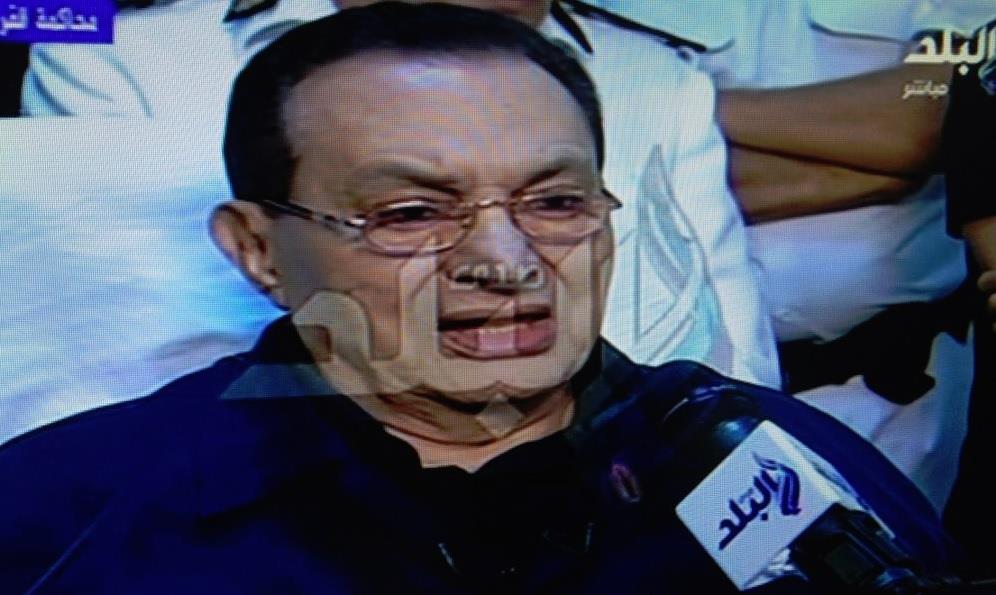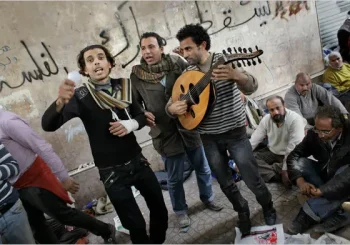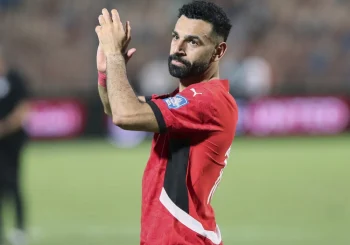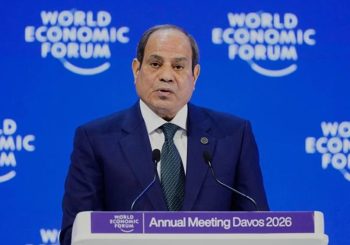Egypt’s former President Hosni Mubarak denied he ordered the killing of protesters who participated in the January 25, 2011 uprising on Wednesday.
Mubarak testified on his own behalf during his trial’s final hearing. The former president is being tried alongside his Interior Minister and six of his aides on charges of killing protesters. Mubarak, his two sons and an Egyptian businessman are also being tried at the same court on corruption charges related to the export of gas to Israel.
The trial was postponed to September 27, when the court is scheduled to issue its verdict.
The defendants are also being tried over inciting violence and creating a security vacuum during the early days of the uprising.
“Mubarak, who stands in front of you, would never order the killing of protesters … or any Egyptian under any conditions,” he said. The former president also denied he was behind the security vacuum which started on January 28 in 2011 following an unprecedented wave of protests. Mubarak dismissed as well financial corruption charges leveled against him.
The toppled president said he ordered the armed forces to take to the streets on January 28 to “preserve security” after the police failed to do its duty due to attacks faced by “conspirators”. He said he “voluntarily” gave up his post as president two weeks later to prevent any “bloodshed”, adding that he handed power to the armed forces trusting their ability to restore the state’s security.
Mubarak defended his 30-year tenure during his Wednesday testimony. Though he did not apologise for any mistakes he made, the former president stressed that like any other human being, he made some right decisions as well as bad ones, yet he said, he always had Egypt’s best interest at heart.
On a regional level, Mubarak reminded the court he “restored Egypt’s severed ties with the Arab World” and restored the Arab League headquarters back to Cairo.
Mubarak also claimed that his 30-year reign saw an economic “leap” despite the population increase and the surging unemployment rates. He said economic reforms he adopted managed to drop half of Egypt’s foreign debt, worth $27 billion.
The former president referred to the “war on terrorism” rhetoric adopted by Egyptian authorities since the military ouster of former Islamist President Mohamed Mursi in July 2013. Mubarak stressed Egypt will be victorious in its current “war on terrorism” as it was victorious when fighting the same enemy during his rule in the 1980s and 1990s.
Mubarak’s sons, Alaa and Gamal waived their right to testify on their own behalf in court, according to their lawyer Farid al-Deeb.
Mubarak was sentenced to life in prison in 2012 for the same charges before an appeals court ordered his retrial.
In May, a Cairo court sentenced Mubarak to three years in prison on embezzlement charges, while his two sons were sentenced to four years in prison for the same charges.
He is serving time in a military hospital in Cairo.







Comments (0)